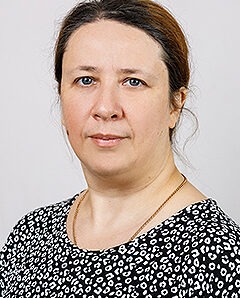About us
The rapid development of knowledge is now making new challenges for the development of science. Areas of scientific research that make it possible to get at least partially closer to solving the painful problems of mankind and those problems, the solution of which will allow to find new ways to save life itself. One of the directions of development of science was mitochondrial medicine.
Rare diseases have historically started at KNMU on the basis of the Department of Medical Genetics for the first time in Ukraine.

The rapid development of knowledge is now making new challenges for the development of science. Areas of scientific research that make it possible to get at least partially closer to solving the painful problems of mankind and those problems, the solution of which will allow to find new ways to save life itself. One of the directions of development of science was mitochondrial medicine.
Rare diseases have historically started at KNMU on the basis of the Department of Medical Genetics for the first time in Ukraine.
This area of research began last century, in an updated approach developed by the Institute, in conjunction with the Department of Medical Genetics of KNMU and MNE KRC “ISMGC-CR(O)D”.
Diagnostic algorithms and treatment programs for a large number of rare diseases have been developed. The Register of Rare Pathology in Slobozhanshchyna is being created. Every year scientific and scientific practical forums of various levels are held on the problem of orphan diseases.
Over the past 20 years, more than 20 centers of mitochondrial and epigenetic medicine have been opened around the world. The most powerful of them operates in New York and has more than 3,000 employees. Another 14 centers were opened in the United States.
The Ukrainian Institute of Clinical Genetics has been gaining experience in the field of mitochondrial pathology since 1992.
Our first scientific publications were published in 2001, doctoral dissertations were devoted to this problem, received the State Prize in Science and Engineering.
The first studies were aimed at studying the problems of genetic epidemiology of mitochondrial dysfunctions and diseases in Ukraine and the interaction of genetic and epigenetic factors in the manifestation of both mitochondrial diseases and mitochondrial dysfunctions.
A study of energy metabolism disorders in gastrointestinal pathology was conducted, which opened a new direction in the diagnosis and treatment of both rare and common disorders of the gastrointestinal tract. The most common forms of these diseases in the pathogenesis of which are mitochondrial disorders. The mitochondrial genome of Ukrainians was studied for the first time.
Currently, the team continues to work in this direction and sees the further development of mitochondrial dysfunction and mitochondrial diseases as the most relevant, based on world experience and their own scientific achievements.
The importance of this problem has been proven by the COVID-19 pandemic: its severe manifestations and complications can be prevented by energy-intensive therapy due to the participation of impaired energy metabolism in the pathogenesis of critical conditions caused by COVID-19 and other pathogenic viruses.
The virological connection of hereditary pathology with the functions of microbiomes and viruses has been studied since the beginning of the creation of clinical genetics in Slobozhanshchina.
The study of the relationship between genome, microbiome and variome is the second area of research at the institute.
Diagnostic algorithms and treatment programs for a large number of rare diseases have been developed. The Register of Rare Pathology in Slobozhanshchyna is being created.
Every year scientific and scientific practical forums of various levels are held on the problem of orphan diseases.
Employees of the institute have developed methods:
- early differential diagnosis of fetal infection;
- differential diagnosis of intrauterine infection and congenital and hereditary pathology of the fetus;
- differential diagnosis of congenital malformations of the nephrovurinary system in the fetus;
- differential diagnosis of non-classical forms of adrenogenital syndrome;
– method of diagnosing mitochondropathies; - diagnosis of hereditary thrombophilia due to impaired conversion of methionine to cystine;
- diagnosis of chronic pancreatitis with homocystinuria;
- differential diagnosis of hereditary and congenital forms of endogenous hypercorticism in patients with neuroendocrine hypothalamic syndrome;
- determining the timing of hepatoprotectors in cystic fibrosis;
- diagnosis of secondary mitochondrial insufficiency in children with chronic diseases of the digestive system;
- production of dietary protein-free bread;
- treatment of hereditary thrombophilia caused by metabolic disorders of sulfur-containing amino acids;
- prevention of reproductive losses in hyperhomocysteinemia;
- diagnosis of manifestations of genomic imprinting;
- treatment of tuberous sclerosis;
- treatment of autism;
- treatment of children with autism spectrum disorders
The Institute cooperates with the State Institution “Institute of General and Emergency Surgery named after V.T. Zaitsev of the National Academy of Medical Sciences of Ukraine”, the State Institution “Institute of Microbiology and Immunology named after I.I. Mechnikov”, Laboratory of Molecular Diagnostics, University of Pennsylvania, Department of Pediatrics, Biochemistry and Genetics, University of Texas, Department of Medical Genetics, University of Pleven and many others.

